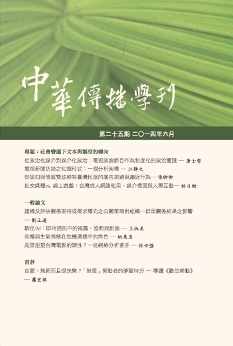 閱覽人數: 2742
閱覽人數: 2742
June
2014
No. 25
社會變遷下文本與類型的轉向
Transformation of Text and Genre under Social Change頁數:161 - 192
作者(中)
王淑美
作者(英)
Sumei Wang
關鍵詞(中)
日常生活、馴化理論、資訊傳播科技、即時通訊
關鍵詞(英)
everyday life, domestication theory, information and communication technologies (ICTs), instant messaging
中文摘要
本研究以資料分析與訪談觀察,探討 IM 科技在台灣社會中使用的脈絡。本文運用馴化理論來分析 IM 科技的使用細節,檢視 IM 持續演變的特色,並討論 IM 特質如何影響了使用策略,使用者集體協商後的道德準則和意涵,不同的生命階段如何表現在其使用 IM 細節之上,以及如何與諸多其他科技交替使用以達到不同目的。由於馴化理論過去多運用在硬體傳播科技,本文除了增進對 IM 使用的探究,也擴大了該理論的實證研究範疇,點出軟體跨階段馴化的特色。
英文摘要
This study explored how instant messaging (IM) is used in the social context in Taiwan. By using archival analysis and ethnographic interviews with Taiwanese university graduates and students in their final year, the author investigated how the strategies of communication through IM are closely related to the shifting of life stages. In this paper, the author addresses how the characteristics of software may influence the users’ strategies, how IM has been integrated with other technologies for various purposes, how the methods of use reflect changes in users’ lifestyles, and how the collective domestication of IM contributes to the formation of a new morality of communication. This paper provides a theoretical contribution to domestication theory by expanding the scope of empirical study from
material objects, such as television and mobile phones, to nonmaterial objects, such as online communication.
material objects, such as television and mobile phones, to nonmaterial objects, such as online communication.